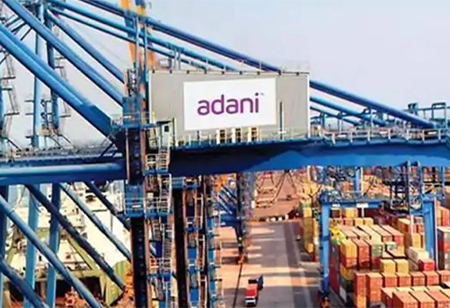
Adani Ports Secures Kandla Terminal with Concession


Adani Ports and Special Economic Zone (APSEZ), India’s largest private port operator, have made headlines by signing a concession agreement with the Deendayal Port Authority.
This 30-year deal, sealed through a competitive tender, allows Adani Ports to equip and operate a multipurpose terminal at Kandla in Gujarat, with a capacity to handle 5.7 million tons (mt) of clean cargo, including containers.
The agreement was finalized on September 10; further cementing Adani Ports influence on the western coast.Adani Port won the contract by offering a royalty of Rs 200 per tonne, the highest bid in the tender process.
The company had previously received the Letter of intent in July and will develop, operate, and maintain the berth under the design, build, finance, operate, and transfer (DBFOT) model. The terminal is expected to become operational between 2026 and 2027.
To manage the operations at this terminal, Adani Ports has established a wholly-owned subsidiary, DPA Container and Clean Cargo Terminal Ltd. This move strengthens Adani Ports Presence at Deendayal Port. Previously known as Kandla Port, which is India’s second-largest state-owned port in terms of cargo terminal at Tuna Tekra, a satellite facility of Kandla Port, since 2015.
The new terminal will have an optimal capacity of 5.7 mt, comprising 4.2 mt of dry bulk cargo and 0.10 million twenty-foot equivalent units. It is designed to handle a wide range of cargo types, including machinery, Ro-Ro cargo, sugar, salt, wooden logs, silica sand, and containers.
Adani Port’s stock performance remains strong, reflecting investors' confidence in the company’s growth prospects. Although shares ended 1.5 percent lower at Rs 1,431.70 on the National Stock Exchange (NSE) in the previous session, the stock has gained approximately 36 percent so far this year, significantly outperforming the Nifty index, which has seen a return of 14 percent. Over the last 12 months, Adani Ports shares have surged by 66 percent, compared to Nifty’s rise of 28 percent, further reinforcing its strong market position amidst India’s growing infrastructure demands.